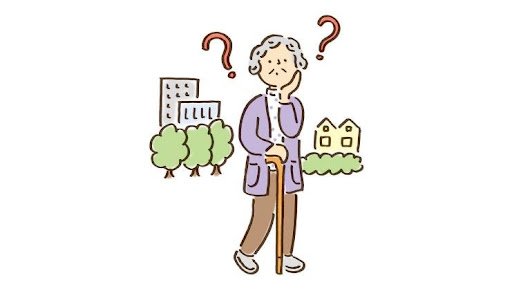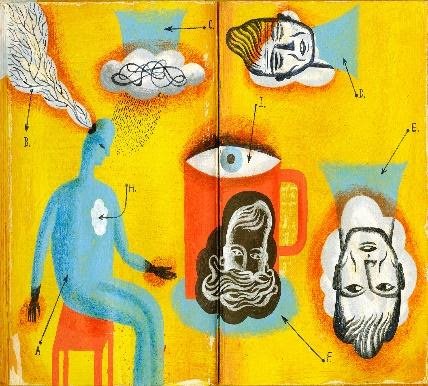12 Hidden Signs of Dementia Everyone Should Know
Do you feel like you are losing track of time? Are you having trouble sleeping or feeling emotionally disconnected? Should these symptoms worry you?
When talking about dementia, people often assume that it is the same thing as memory loss. Well yes, memory loss is one of the symptoms of dementia. I said one… but there are many others.
Why would it be so important to know other signs of dementia besides memory loss? To be able to recognize the condition in its early stages and thus help a loved one start treatment earlier. In the end, it's more this case: knowing how to recognize the signs of dementia in someone else, because analyzing yourself is much more difficult.
Let's take a look at 13 lesser-known signs that may be indicative of dementia!
- Orientation problems

Beyond memory problems, dementia can lead to confusion about time and space. People can become disoriented, unable to remember the day, month or place they are in, causing anxiety and a sense of unease as they lose familiar landmarks of life.
- Mobility problems
Dementia can cause mobility problems: the person often slips, trips and falls. You may even notice that instead of walking and standing, the person crawls on the floor.
- Speech difficulties
The affected person has difficulty maintaining a conversation or cannot find the right words. Sometimes he/she may use a related word but incorrectly, make up words or utter meaningless phrases. This is actually a language impairment called aphasia, which results from the damage to the part of the brain that controls speech and language comprehension.
- Losing track of time

There are two possible causes for this early symptom of dementia: either it is due to memory loss, or the brain can no longer read the hands of a clock. There is also a test called the “clock drawing test” where a person is asked to draw the hands of a clock at a given time. If the person suffers from early dementia, there is a high probability that he/she will fail this task.
- Personality or mood changes
The frontal lobes control the ability to concentrate and emotions, so when cells in this area are affected, personality changes can occur. As soon as you notice that the person has changed, that dramatic changes in personality and typical behavior have occurred, immediately make an appointment with a neurologist.
- Vision loss
In some rarer types of dementia, such as posterior cortical atrophy, the part of the brain responsible for understanding images is affected. This can cause loss of image recognition, with the affected person not being aware of this deficit.
- Sensory problems
These are symptoms of dementia that go almost unnoticed, unrecognized and unreported. This type of problem refers to the perception of depth, the evaluation of distances, awareness of space, sensitivity to noise and changes in taste and smell.
- Hallucinations

In the case of certain types of dementia, it is possible for the person to have hallucinations or illusions, see colors, people or objects that are not there.
- Apathy or increased agitation
A change in behavior, such as a sudden lack of interest in activities of any kind, can be an early sign of dementia. At the same time, other people may show increased agitation, restlessness or irritability, which can also be attributed to some cognitive changes that take place.
- Sleep disturbances
Dementia can change sleep patterns, the affected person facing insomnia or excessive sleepiness during the day. Disturbed sleep can exacerbate cognitive decline, affect mood, and disrupt general well-being.
- Emotional disconnection
Dementia can manifest as a loss of empathy; the affected person struggles to understand or respond to the emotions of others, leading to strained relationships.
- Increased appetite for sweets

This is a silent but rather surprising symptom that came to light in a study conducted by a group of British researchers, namely the preference for sweet foods, in the early stages of dementia.
The sad truth is that dementia is not curable, it is progressive and affects cognitive and behavioral functioning, but… the treatments and interventions currently available focus on managing symptoms and slowing the progression of the disease. This is why it is very important that the disease is discovered in its earliest stages.
I am waiting for you to write to me if you know a case of dementia and what was the alarm signal that something was wrong…
Take care of yourself and your loved ones!







